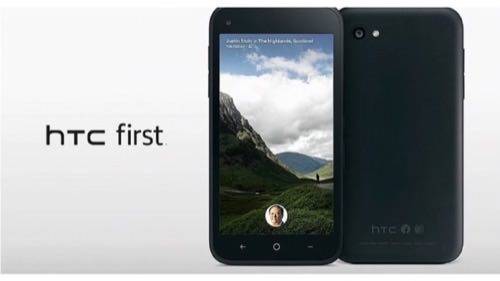
Once-vaunted smartphone maker HTC is scraping the bottom of the barrel. On Monday it posted its sixth straight quarter of declining revenues and barely made an operating profit in the first quarter of 2013. While it may be time to officially place HTC on the ReadWrite Deathwatch list, the biggest impact of HTC’s declining financial position could be trouble for two of its most important partners, Microsoft and Facebook.

Microsoft Could Be Left On The Sidelines
Next to Samsung and Nokia, HTC is one of the few major smartphone manufacturers that builds Windows Phones. For those that pay attention to these kinds of things, the HTC 8X is perhaps the most sleek, beautiful and powerful Windows Phone around, including Nokia’s flagship Lumia devices.
Despite their beauty, though, HTC’s entries into the Windows Phone market have not created a lick of excitement. For HTC or for Windows Phone. Despite recent gains, Windows Phone remains a bit player in the Smartphone Wars next to iOS and Android. It’s stuck in a fight with resurgent BlackBerry for the scraps from Apple and Google’s table. On the flip side, Windows Phone has not been a boon for HTC. If it was, we would not be discussing the mess that is the Taiwanese manufacturer’s situation right now.
With the declining profit, HTC only has so much bandwidth to tackle the various issues on its plate. And there are a lot of issues. It is rolling out a huge marketing campaign for its flagship HTC One Android device. It plans on entering the low-end smartphone market to take advantage of high growth regions like China and India. It has to address the components shortage that has led to the month-long delay of the launch of the HTC One.
The One has to be HTC’s priority. The flagship phone is an all-in bet for the company and it needs to channel its resources to get consumers to buy it. The biggest factors for adoption will be how well HTC can distribute the smartphone to carriers across the globe and then effectively market it to high-end consumers.
Where does that leave Windows Phone and Microsoft? Likely on the sidelines. HTC has to have learned the lesson that producing even really good Windows Phones will not give it an appreciable bump in revenue. And the manufacturer has only so many bullets it can shoot at once.
The Facebook Effect
Facebook is in a different spot than Microsoft in its partnership with HTC. The HTC First will be an Android phone launching with the Facebook “Home” skin/launcher later this week. Initial impressions are mixed. On one hand, Facebook created an interesting skin to lay on top of the Android operating system. It looks good, has some intriguing features and should foster Facebook app development for the Android environment. On the other hand, if you do not really care for Facebook, Home is not going to be worth the trouble. Hence, neither will the HTC First.
The First is also working with last year’s hardware specs. Really, there is little special about the phone itself other than the application layer that Facebook is adding. The First is naturally limited by design from both the hardware and software angles.
Yet there is something to be said for Facebook Home launching on the HTC First. Like Opening Day in baseball, expectations are still fresh and hope is still alive – even for franchises extremely unlikely to end the season on top.
Facebook is doing all the heavy lifting when it comes to the software of the HTC First. And since HTC is not pushing the bounds on new components, it theoretically should cost the company very little to develop and produce the “Facebook Phone.” If we assume that Facebook will also handle the marketing of the device and HTC’s partnership with Facebook becomes a no-lose, possibly big win proposition. If HTC can take what is essentially a proof-of-concept smartphone and make any real revenue from it, everybody wins.

















